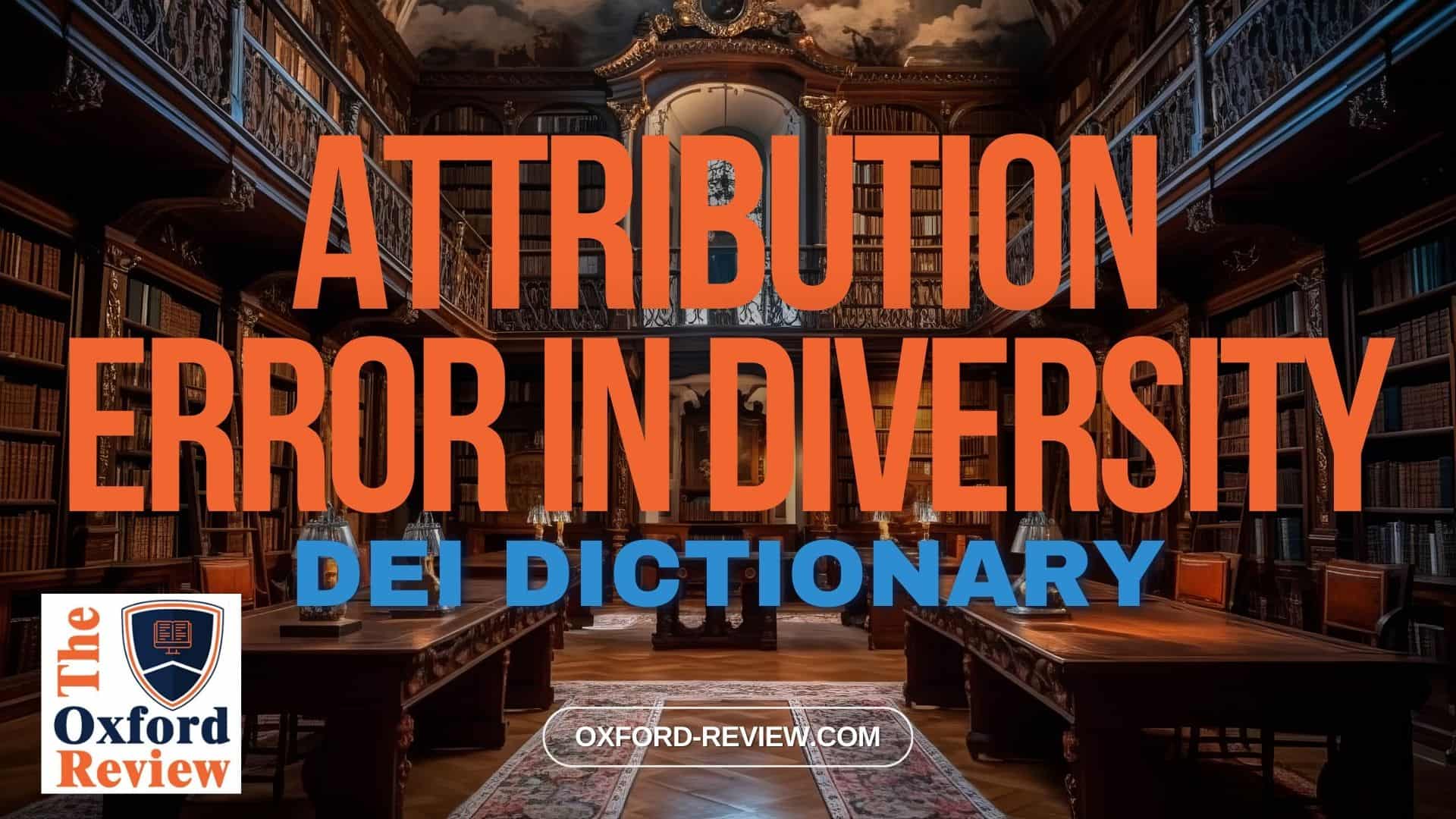Attribution Error in Diversity – Definition and Explanation

Understanding Attribution Error in Diversity: Definition, Examples, and Impact
In the realm of Diversity, Equity, and Inclusion (DEI), comprehending the subtleties of human behaviour is paramount. One psychological concept that holds significant sway in DEI efforts is Attribution Error.
Definition:
Attribution Error refers to individuals’ tendency to attribute others’ behaviour to internal characteristics or traits, while disregarding situational factors that may have influenced said behaviour. In simpler terms, it entails overestimating personality’s influence and underestimating external factors when explaining others’ behaviour.
Example:
Consider a scenario where a female colleague, Sarah, confidently presents her ideas during a team meeting. Rather than considering Sarah’s confidence as stemming from her expertise and preparation, her male counterparts attribute it to her gender, presuming she’s being aggressive or attempting to dominate. This attribution overlooks Sarah’s preparation and expertise, exemplifying Attribution Error.
Impact:
Attribution Error can severely impede diversity and inclusion efforts within organisations. When individuals consistently misattribute behaviour based on stereotypes or biases, it can lead to unfair treatment, unequal opportunities, and a hostile work environment for marginalised groups.
Conclusion:
In the pursuit of fostering diversity, equity, and inclusion in any setting, it’s imperative to recognise and address Attribution Error. By acknowledging the impact of situational factors on behaviour and challenging stereotypes and biases, organisations can create a more inclusive environment where individuals are evaluated based on their actions and contributions rather than preconceived notions. Understanding Attribution Error is not just about recognising its presence but actively working to mitigate its effects, thereby promoting a culture of fairness, respect, and equal opportunity for all.
References:
Pettigrew, T. F. (1979). The ultimate attribution error: Extending Allport’s cognitive analysis of prejudice. Personality and social psychology bulletin, 5(4), 461-476. https://journals.sagepub.com/doi/abs/10.1177/014616727900500407
Corneille, O., Yzerbyt, V. Y., Rogier, A., & Buidin, G. (2001). Threat and the group attribution error: When threat elicits judgments of extremity and homogeneity. Personality and Social Psychology Bulletin, 27(4), 437-446. https://journals.sagepub.com/doi/abs/10.1177/0146167201274005
Pfingsthorn, J., & Weltgen, J. (2022). Inclusive and fair assessment in foreign language education: The role of fundamental attribution error in the evaluation of students’ performance. International Journal of Educational Research Open, 3, 100160. https://www.sciencedirect.com/science/article/pii/S2666374022000395
Be impressively well informed

Get the very latest research intelligence briefings, video research briefings, infographics and more sent direct to you as they are published
Be the most impressively well-informed and up-to-date person around...
